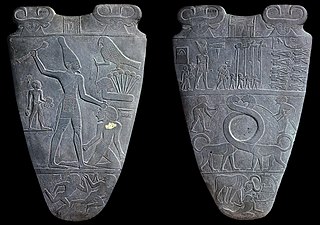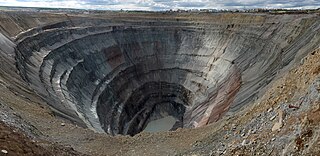See also
| Types of political culture | |
|---|---|
| Country-specific articles | |
A parochial political culture is a political culture where citizens have only limited awareness of the existence of central government. [1] Parochial culture leads to the general ignorance about political subjects and a consequent lack of involvement of political activity. It may occur in regions where traditionally-stateless societies are subject to the jurisdiction of a state, their limited awareness of the law contributing to the power dynamics between such communities and their state. [2]
Citizenship is an allegiance of a person to a state.

Natural resources are resources that are drawn from nature and used with few modifications. This includes the sources of valued characteristics such as commercial and industrial use, aesthetic value, scientific interest, and cultural value. On Earth, it includes sunlight, atmosphere, water, land, all minerals along with all vegetation, and wildlife.
In the broadest sense, cultural resource management (CRM) is the vocation and practice of managing heritage assets, and other cultural resources such as contemporary art. It incorporates Cultural Heritage Management which is concerned with traditional and historic culture. It also delves into the material culture of archaeology. Cultural resource management encompasses current culture, including progressive and innovative culture, such as urban culture, rather than simply preserving and presenting traditional forms of culture.
A hydraulic empire, also known as a hydraulic despotism, hydraulic society, hydraulic civilization, or water monopoly empire, is a social or government structure which maintains power and control through exclusive control over access to water. It arises through the need for flood control and irrigation, which requires central coordination and a specialized bureaucracy.

The exploitation or destruction of natural resources is the use of natural resources for economic growth, sometimes with a negative connotation of accompanying environmental degradation. Environmental degradation can result from depletion of natural resources, this would be accompanied by negative effects to the economic growth of the effected areas.
Trial in absentia is a criminal proceeding in a court of law in which the person who is subject to it is not physically present at those proceedings. In absentia is Latin for "in (the) absence". Its meaning varies by jurisdiction and legal system.

Political culture describes how culture impacts politics. Every political system is embedded in a particular political culture.
The resource curse, also known as the paradox of plenty or the poverty paradox, is the phenomenon of countries with an abundance of natural resources having less economic growth, less democracy, or worse development outcomes than countries with fewer natural resources. There are many theories and much academic debate about the reasons for and exceptions to the adverse outcomes. Most experts believe the resource curse is not universal or inevitable but affects certain types of countries or regions under certain conditions.
Parochialism is the state of mind whereby one focuses on small sections of an issue rather than considering its wider context. More generally, it consists of being narrow in scope. In that respect, it is a synonym of "provincialism". It may, particularly when used pejoratively, be contrasted to cosmopolitanism. The term insularity may be similarly used to connote limited exposure.

The energy industry is the totality of all of the industries involved in the production and sale of energy, including fuel extraction, manufacturing, refining and distribution. Modern society consumes large amounts of fuel, and the energy industry is a crucial part of the infrastructure and maintenance of society in almost all countries.

State-building as a specific term in social sciences and humanities, refers to political and historical processes of creation, institutional consolidation, stabilization and sustainable development of states, from the earliest emergence of statehood up to the modern times. Within historical and political sciences, there are several theoretical approaches to complex questions related to the role of various contributing factors in state-building processes.
Feminist political ecology is a feminist perspective on political ecology, drawing on theories from Marxism, post-structuralism, feminist geography, ecofeminism and cultural ecology. Feminist political ecology examines the place of intersectional social relations in the political ecological landscape, exploring them as a factor in ecological and political relations. Specific areas in which feminist political ecology is focused are development, landscape, resource use, agrarian reconstruction and rural-urban transformation. Feminist political ecologists suggest gender is a crucial variable – in relation to class, race and other relevant dimensions of political ecological life – in constituting access to, control over, and knowledge of natural resources.
Ecogovernmentality, is the application of Foucault's concepts of biopower and governmentality to the analysis of the regulation of social interactions with the natural world. The concept of Ecogovernmentality expands on Foucault's genealogical examination of the state to include ecological rationalities and technologies of government. Begun in the mid-1990s by a small body of theorists the literature on ecogovernmentality grew as a response to the perceived lack of Foucauldian analysis of environmentalism and in environmental studies.
A civic culture or civic political culture is a political culture characterized by "acceptance of the authority of the state" and "a belief in participation in civic duties". The term was first used in Gabriel Almond and Sidney Verba's book, The Civic Culture. Civic political culture is a mixture of other political cultures namely parochial, subject and participant political cultures. Almond and Verba characterised Britain as having a civic political culture. In "Is Britain Still a Civic Culture?" Patrick Seyd and Paul Whiteley discuss the extent to which Britain can still be regarded as having a civic political culture. The term civic culture is used to identify the political culture characteristics that explain the stability of a democratic society's political structure.
Warri South West is a Local Government Area in Delta State, Nigeria. It was created in 1996 and has its headquarters in Ogbe-Ijoh, an Ijaw community.
The Minerals Resource Rent Tax (MRRT) was a tax on profits generated from the mining of non-renewable resources in Australia. It was a replacement for the proposed Resource Super Profit Tax (RSPT).
Elite capture is a form of corruption whereby public resources are biased for the benefit of a few individuals of superior social status in detriment to the welfare of the larger population. Elites are groups of individuals who, because of self-ratifying factors such as social class, asset ownership, religious affiliations, political power, historic discrimination among social groups, political party affiliation, or economic position, have decision-making power in processes of public concern. This specific form of corruption occurs when elites use public funds, originally intended to be invested in services that benefit the larger population, to fund projects that would only benefit them. This form of corruption is differentiated from outright criminal corruption such as embezzlement, misappropriation, or other diversion of funds by a public official.
A petrostate or oil state is a country whose economy is heavily dependent on the extraction and export of oil or natural gas. The presence alone of large oil and gas industries does not define a petrostate; countries like Canada and the United States are major oil producers but also have diversified economies. Petrostates also have highly concentrated political and economic power, resting in the hands of an elite, as well as unaccountable political institutions which are susceptible to corruption.

Extractivism is the removal of natural resources particularly for export with minimal processing. This economic model is common throughout the Global South and the Arctic region, but also happens in some sacrifice zones in the Global North The concept was coined in Portuguese as "extractivismo" in 1996 to describe the for-profit exploitation of forest resources in Brazil.
Akali TangeAssociation Inc is a human rights focused landowner's association based in Porgera, Papua New Guinea that advocates for community interests where multinational mines operate.